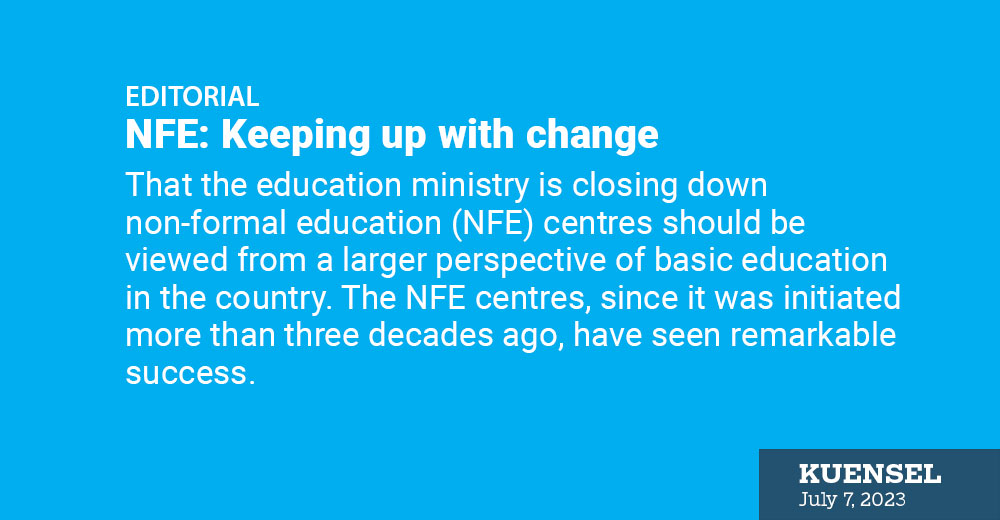That the education ministry is closing down non-formal education (NFE) centres should be viewed from a larger perspective of basic education in the country. The NFE centres, since it was initiated more than three decades ago, have seen remarkable success.
If our rural population, across the country, had been hungry for education, the initiative provided just that. The figures show it all. In 2020, NFE learners contributed 66.05 percent to adult literacy, according to records from NFE office. Beyond the contribution to national achievements, what is notable is that the programme has benefited about 200,000 NFE learners.
The initiative offered a second chance to Bhutanese who missed school. NFE was to teach farmers, housewives and the many who lacked basic schooling. It also touched other vital areas like health and agriculture besides enabling them to read and write.
The benefit is there in the villages and even in urban corners to see. It is in a farmer who can read an agricultural notification or the self-confidence given to a mother who can calculate her annual earnings from the vegetables she sells or expenditure spent on her children. It is in the independence given to a rural traveller who can read his seat number or the expiry date on a packaged food.
The decision to close down NFE centres is attributed to the declining number of learners. Although there is no study indicating the reasons for this decline, it can be assumed that it is due to the success of the programme. Between 2010 and 2022, about 68,000 women and 27,660 men attended, if not benefited from the NFE. Women representation was 144 percent more than men’s in the same period.
NFE centres in places like prisons, dzongs, and other monastic institutions are being closed because there are other educational programmess available, in addition to monastic studies. English has become a popular subject in shedras, lobdras, and even in gomdeys. With free basic education available, there aren’t many individuals left behind. In prisons, we have “English-talking” inmates or even writers who could potentially teach others.
Today’s priority is not NFE or changing what is taught in the centres. In the current context, the priority should be teaching farmers and illiterate housewives the technology that governs us.
Digital and media literacy should be a priority if NFE continues. Farmers would be delighted to embrace the technological advancements the country has witnessed. For them, it could mean trusting in e-payments or knowing how to perform tasks without having to visit their neighbours or the gup’s office.
NFE has come a long way and has benefited thousands of Bhutanese. It needs to adapt to keep pace with the changes. Knowing how to read or write is no longer sufficient. For example, our farmers should be equipped with the skills to leverage technological advancements.


